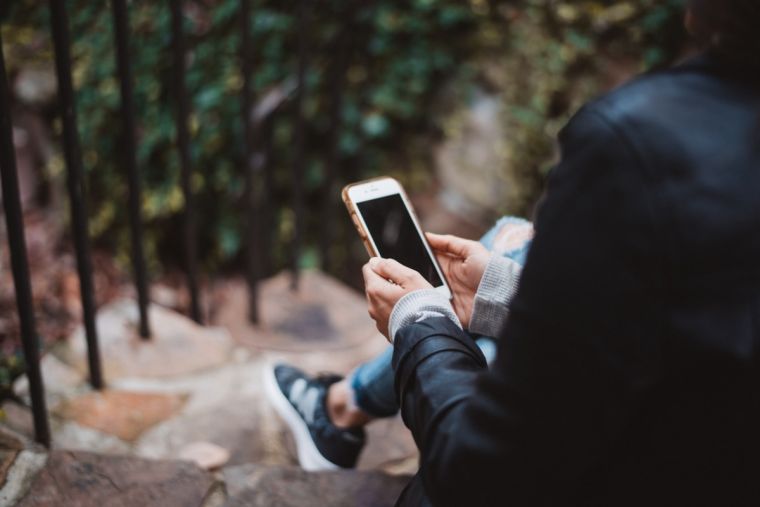Why are we so reluctant to pick up the phone and call people?

Over the last few months I have become aware of a strange phenomenon which has been a consequence of lockdown and the disruption of normal social behaviours. This is a reticence to take the first step and to call people to keep in touch.
I had originally assumed that there would be a natural increase in the use of the telephone to keep in touch with each other when face-to-face opportunities dwindled and disappeared. However, to my surprise this was not the case, at least not in the way that I expected.
Let me explain. I am the Director for Premier Lifeline - a national confidential telephone helpline - and therefore the telephone is my key focus of activity. And yes, over the last year we have experienced a surge in demand for our service with a significant increase in the number of calls made to us. We have answered 80,000 calls in the year to 28 February 2021.
However, through numerous conversations I have had over the past year, I have realised that for many people there has been a significant reduction in the use of the telephone during lockdown. This has meant that not only have people lost the social contact of face-to-face activity, social clubs, community groups, meeting for coffee, church, concerts and pubs, but they have also lost a significant amount of their associated telephone interaction as well.
There seems to be an underlying reason for this unexpected effect. If you analyse the typical calls that are made between people, many are made for a purpose, with intent, and with an outcome in mind. If you are involved in a church, club or society, then much of the contact is made to facilitate planning, organising, arranging; if you are a social creature, then you will have been busy setting up your social interactions through making calls.
Before the changes brought by the pandemic, many people's lives were very busy and active, and they were in constant touch with each other to co-ordinate all sorts of arrangements and plans. However, with the cessation of all of the activities, all the reasons for the contact stopped, leaving a vacuum. The result of this meant that people, often previously very active and social beings, were left with very limited contact. People were not calling each other as much as before because they had no good reason to: all the normal excuses to call had gone.
Many, though perhaps unconsciously, felt they needed a reason to call; or, to put it another way, that they needed to have permission to call, to intrude into another person's private space.
The result of this is that many people who are usually in constant touch with others for a whole host of reasons are now left bereft, isolated and lonely, often preoccupied with just surviving and trying to cope with this change in circumstances.
I realise it requires a change in etiquette and culture, but it truly is important to recognise that there is a need for human contact and communication. So many people I know wait for others to call them because they do not feel they have permission to call without a "good reason", and yet often the calls do not come because the expected callers are also affected by the same beliefs, and are hesitant to make the first move.
We need to break through this reticence, to take courage and make the call. We need a culture of calling just to ask people how they are, to check in with each other without the need for a "good reason" or excuse. Recent research has highlighted that over a quarter of people surveyed could not remember the last time a non-family member called to ask how they were. And this is at a time when we as a society are facing one of the greatest upheavals in living memory.
It is often said that a good way to help someone who is isolated is to encourage them to volunteer to help others. Even during this time of lockdown and isolation, one thing we can all do is to use the telephone and speak with people. Yes, it does require some thought, picking up the telephone and dialling, but it will re-establish links with people and just maybe it will break the reliance on the need for a reason to call with implied "permission".
Because I have become so aware of the impact of isolation and loneliness at this time, we have launched a campaign called Call5 where we are encouraging everyone to call five people they know, based on the five digits on one hand, initially thinking through who might be feeling most lonely at present or whose lives have been turned upside down - you can find out more here www.call5.co.uk. Of course, five is not the limit, just the starting point. We have two hands and so the next step could be to consider another five to call.
Through the Call5 movement, we want to encourage lines of communication to grow like an ever-expanding spider's web of contact across the country, giving rise to a growing network of mutual support. In addition, we have launched a project called Call and Care to train and equip organisations – churches and community groups – to call people in their neighbourhoods in a more organised way. The companion website www.callandcare.org.uk offers twelve short training videos plus downloadable resources, all free of charge. Through these simple projects we can overcome isolation, increase a sense of belonging - and give permission to call.
Jonathan Clark is director of Premier Lifeline, a confidential telephone helpline open 365 days a year from 9am to midnight on 0300 111 0101.











